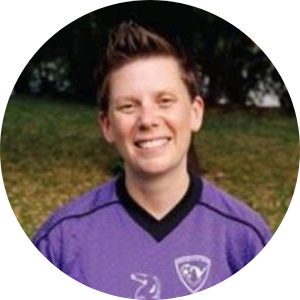No classroom doesn’t equal no paycheque
The interesting thing about the world of education is that there is a whole sort of periphery industry that revolves around relations between primary, secondary, and post-secondary schooling, and their connections with the outside world.
For example, last week I contacted the Manitoba Securities Commission in order to get some resources for an equities unit I’m preparing for my grade 12 business course next year. The person who responded to me had a B. Ed degree and hadn’t been able to land a job out of school, so she followed her business interests as they lead her into her current position.
Another place to look would be the recruitment office of post-secondary institutions. It doesn’t take a genius to figure out that someone who has spent some time in high schools and has a degree in how to communicate with students (in theory anyway) would be a great fit as a spokesperson to promote a post-secondary institution. Several government programs that are connected with secondary schools are also excellent places to look for these sort of “periphery” education jobs.
Alternative options
If you want to keep your teaching cap on in some capacity I recommend exploring alternative options to finding a full-time teaching job within Canada. There is a huge demand in all over the world right now (especially in Asian private schools) for schooling in English. Not just in teaching English, but in taking their whole school experience from a teacher who is a native English speaker. When the goal is to send a student on to post-secondary study in Canada and/or the USA, then B. Ed degrees from a country like Canada are very attractive, and have begun to command a premium on the open market in the form of some pretty cool and creative perks.
The other option that can be a great side gig and used in combination with the other options I’ve talked about is tutoring. Many teachers who are “curriculum-driven” and just couldn’t find a place in today’s “self-esteem-based” classroom have built quite a nice little income for themselves by filling in the considerable amount of blanks our current public education model leaves out.
While I haven’t done a whole lot of tutoring myself, I am friends with several people who did it throughout their B. Ed program and they claimed the one-on-one or small group experience was very rewarding and almost stress-free. It was worlds removed from the reality of most schools, and much closer to what they had in mind when they got into the field.
The skillz that pay the bills… hopefully
Whether you are applying to be a post-secondary student advisor (one of the good ones, not one of the ones that J.B. had problems with) or for an HR position in the public or private sectors, the key is to emphasize the diverse skill set that you developed throughout the course of your studies. Student teaching and the smorgasbord of classes you take throughout your B. Ed degree can be creatively spun to fit a lot of job descriptions. Think about presenting yourself using certain keywords and examples to back them up:
- Experience and extensive instruction in multiple forms of communication including public speaking
- Thorough planning skills
- Comfortable working in a team environment (teaching staff), or in more individual circumstances
- Interacted with the public in many different capacities, and with a wide variety of people
- Great volunteer record (most people within education have a fairly solid resume here)
- Very competent with commercial software programs and their applications
The list can go on and on, but the idea is that while you thought you were building a skill set that would enable you to be a teacher, that toolbox doesn’t suddenly disappear just because the title of the job you are applying for does. It is all about being creative and presenting yourself in a positive light (as most things are in life). Well, that and who you know anyway.
While I still believe the best idea for most teachers that are having trouble finding work is to check rural listings (it honestly isn’t that scary guys/gals), it is important to know what options are out there and available to the growing number of teachers who have “nowhere” to teach. Some people just aren’t cut out to be teachers and/or the job is much different than the one they believed they were getting into. The key is not to disregard your education (although this might be tempting on several levels) but instead learn to creatively market it, and use it to get to a place you want to be and where you can excel at.
Do you know anyone that is trying to navigate the muddy waters of the teaching profession? Any advice for them?






